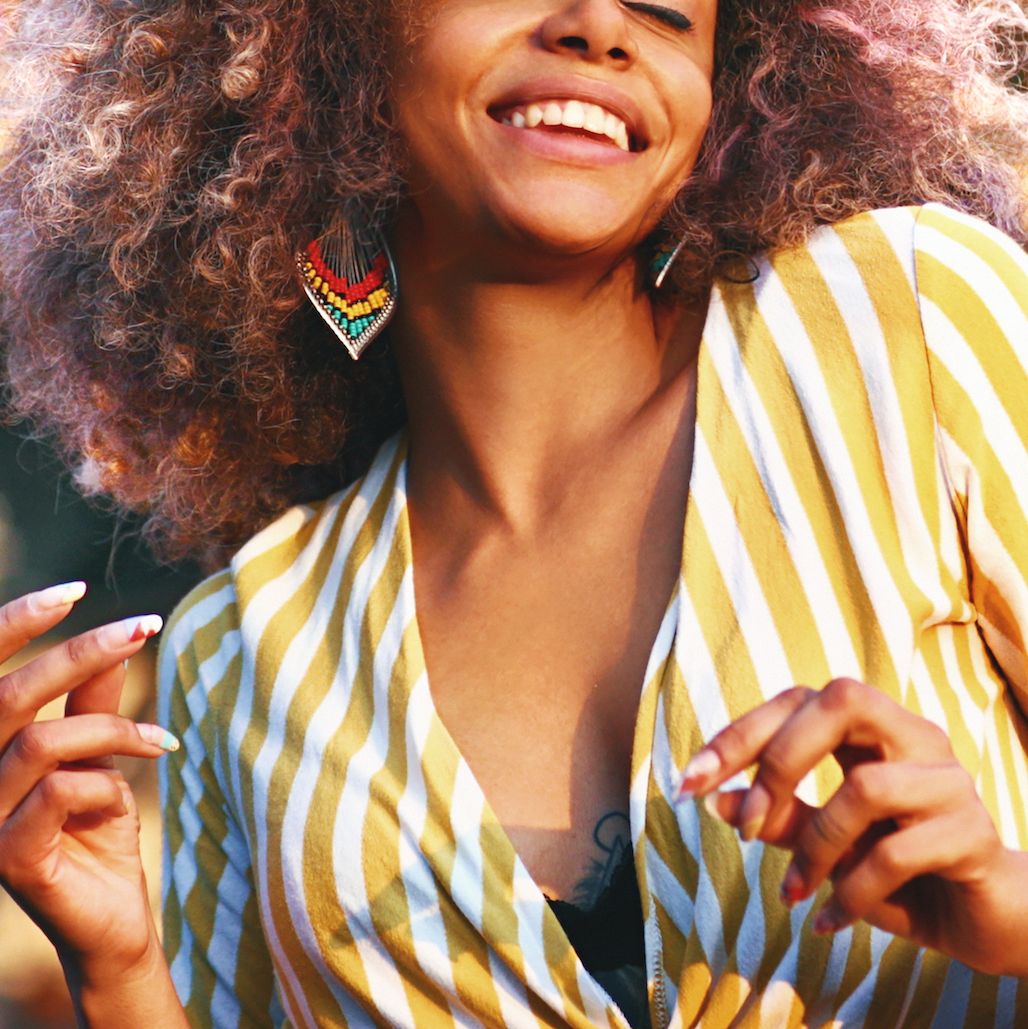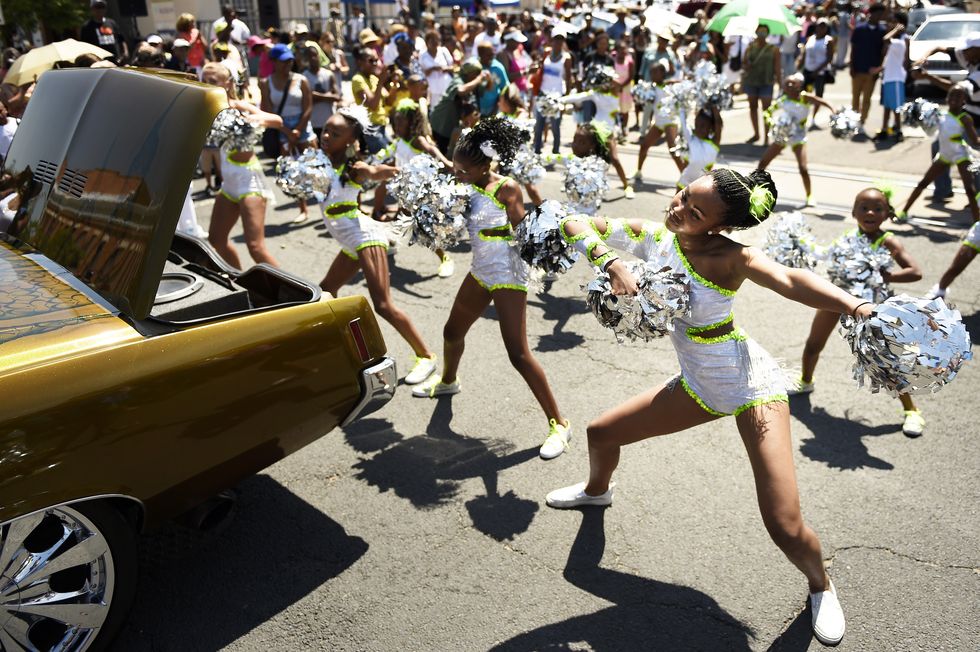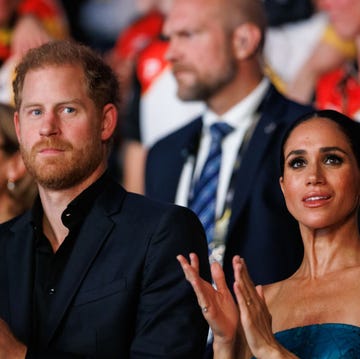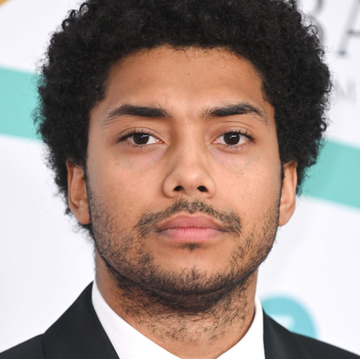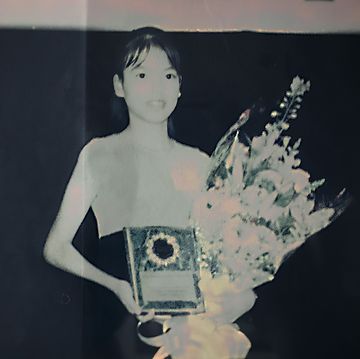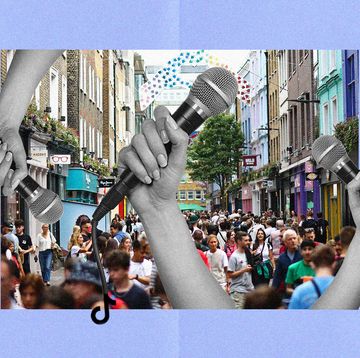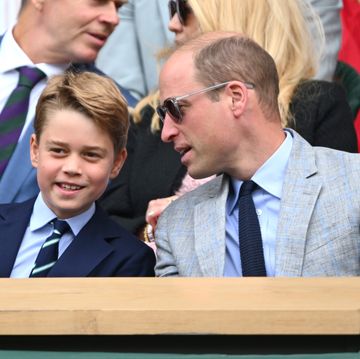Given the huge swell of support for the Black Lives Matter movement over the past year, triggered by the murder of an African American man named George Floyd at the hands of a police officer, it's possible that you may just be hearing about a long-held tradition - Juneteenth - for the first time. But what exactly is it?
The celebration, which takes place each year on 19 June (and is also known as Freedom Day, Emancipation Day or Jubilee Day) marks the anniversary of a group of slaves in Texas being told they were emancipated (meaning formally liberated) in 1865.
Although there were many other celebration days denoting the emancipation of slaves, Juneteenth is the largest, in part due to a march that took place in 1968, known as the Poor People's March. The group, who had been pressing for economical equality and occupied a mall in Washington, chose 19 June as their day to march and end their organisation's work on a high note. The date then spread around the country, as members of the Poor People's Campaign returned to their various home states.
Many companies (including British fashion brand Sophia Webster, who have pledged to donate 19% of their average daily sales to Black causes on 19 June each year) now say they'll be observing the date too.
Why is it called Juneteenth?
Well, if you hadn't already guessed, it's a combination of June (the month) and nineteenth (the day of the month when the declaration of emancipation was read out in Texas by a general). It's worth noting that some slaves in other areas of the country sadly weren't liberated for a further six months.
In America, currently 47 out of the 50 states (plus the District of Columbia) recognise Juneteenth as an official holiday. Montana was the latest one to make it an official holiday in 2017.
Why do people celebrate Juneteenth?
"Juneteenth today becomes an opportunity to remind Americans of the distinctive contributions that African Americans have made in culture," said Dr Lori Brooks, a Fordham University Professor, during a video explainer on Juneteenth with Inside Edition.
She added that it's also a chance to "remind African Americans of their own past that has been about striving for access, for opportunity to be represented in a dignified and humane way." Brooks also shared that she hopes Juneteenth becomes a holiday that non-African Americans can find a way to partake in too.
How do people celebrate Juneteenth?
It's said that following news of their freedom in Texas in 1865, African American slaves danced, feasted and met for community celebrations, continuing to do so on every 19 June thereafter. Nowadays, it's a pretty similar set-up: think meeting with loved ones, eating together and having a good time, while speeches and readings on freedom are made. Local parades also happen, but many have been cancelled this year due to coronavirus.
It's hoped that going forward big businesses will use the opportunity to take stock of what they can do to help Black communities the world over going forward and to reflect on what they can do better internally.
Jennifer Savin is Cosmopolitan UK's multiple award-winning Features Editor, who was crowned Digital Journalist of the Year for her work tackling the issues most important to young women. She regularly covers breaking news, cultural trends, health, the royals and more, using her esteemed connections to access the best experts along the way. She's grilled everyone from high-profile politicians to A-list celebrities, and has sensitively interviewed hundreds of people about their real life stories. In addition to this, Jennifer is widely known for her own undercover investigations and campaign work, which includes successfully petitioning the government for change around topics like abortion rights and image-based sexual abuse. Jennifer is also a published author, documentary consultant (helping to create BBC’s Deepfake Porn: Could You Be Next?) and a patron for Y.E.S. (a youth services charity). Alongside Cosmopolitan, Jennifer has written for The Times, Women’s Health, ELLE and numerous other publications, appeared on podcasts, and spoken on (and hosted) panels for the Women of the World Festival, the University of Manchester and more. In her spare time, Jennifer is a big fan of lipstick, leopard print and over-ordering at dinner. Follow Jennifer on Instagram, X or LinkedIn.
